First of all, you can’t go wrong with the Precision-bass design. It will always stand as a great example of how perfection shall look like. This bass is sounds very good. The pickups sounds great, and gives you the punch of a classic electric bassound that we’re all looking for. The beautiful combination of the sunburst and pickguard, is for me, breathtaking. Looks very vintage. Some people have complained about dry fingerboard, and I can honestly say, that I don’t know what they are talking about. Of course it may be induvidual, but my bass has a nice, flat fretboard, and doesn’t need to be oiled with anything. It does not cost too much, and then you may expect some minor fauls here and there, but then I’ve also heard stories about very expencive Gibsons which also has some markings.
I have no problems with the tuners. This is a great bass, and one should be careful with listening to what other means about all (tuners, pickups, strings) before you’ve actually had a chance to play it.
Buy this, if you are looking for a beautiful bass, which of course The classic vibes in fact are! You don’t need to change a thing. Of course, I added some bridge- and pickupcovers, cause I love the look of that, especially with those collours.



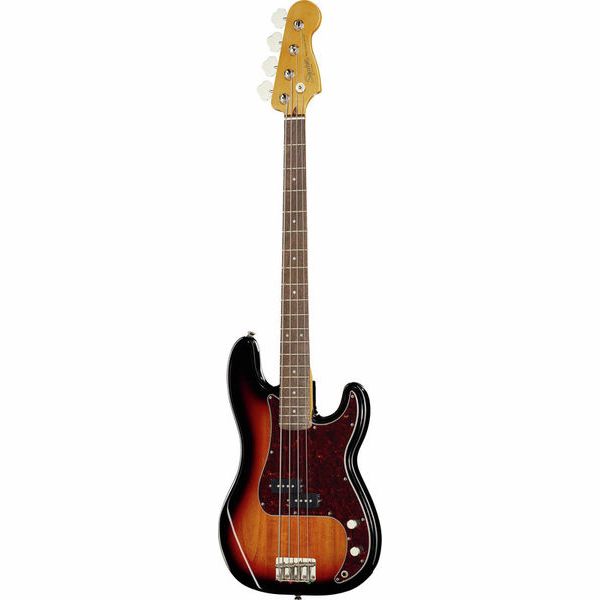
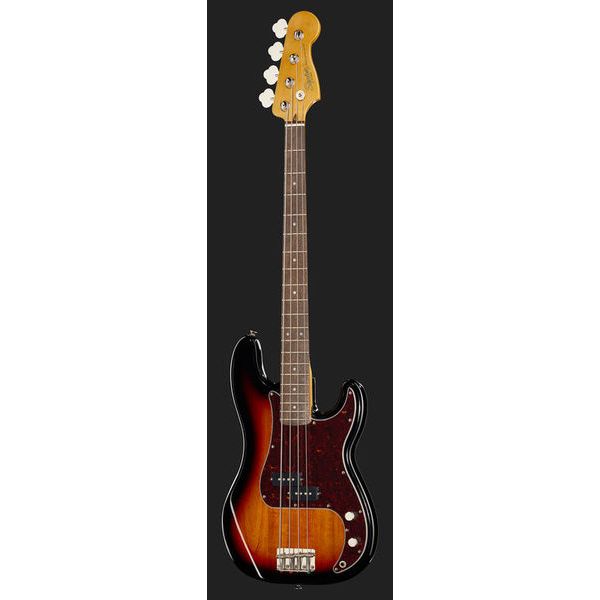
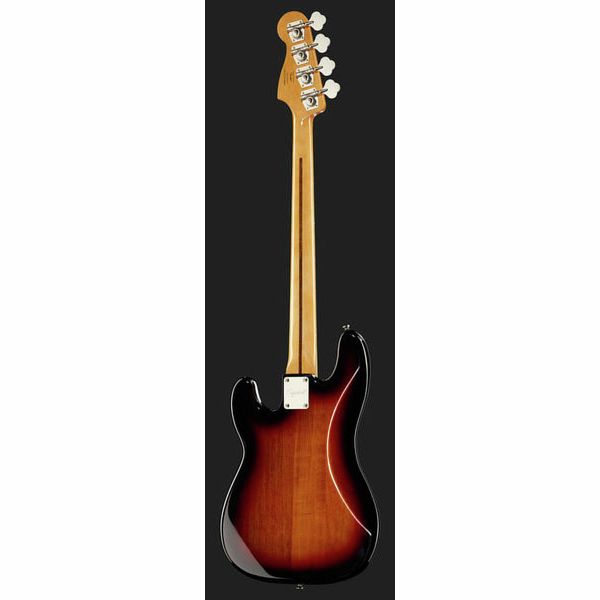
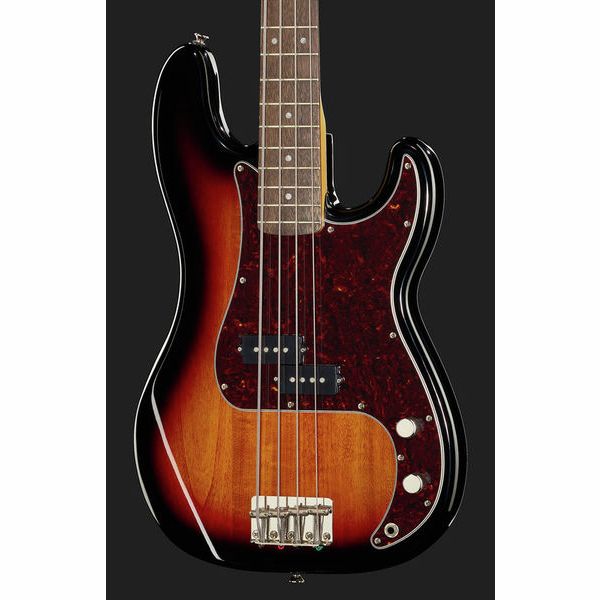
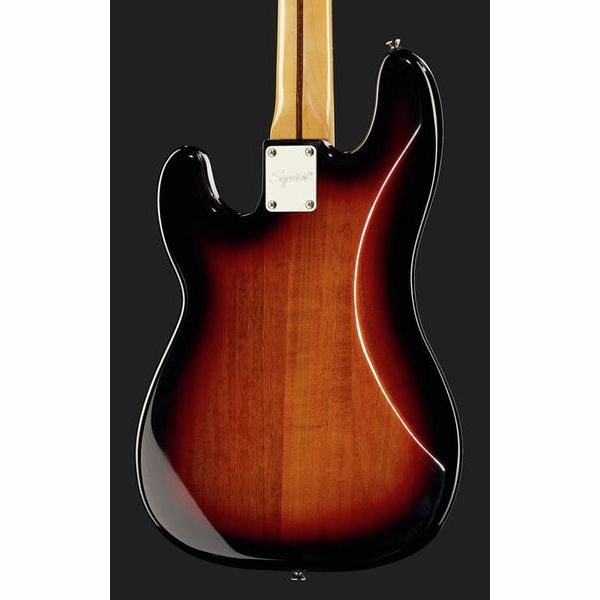
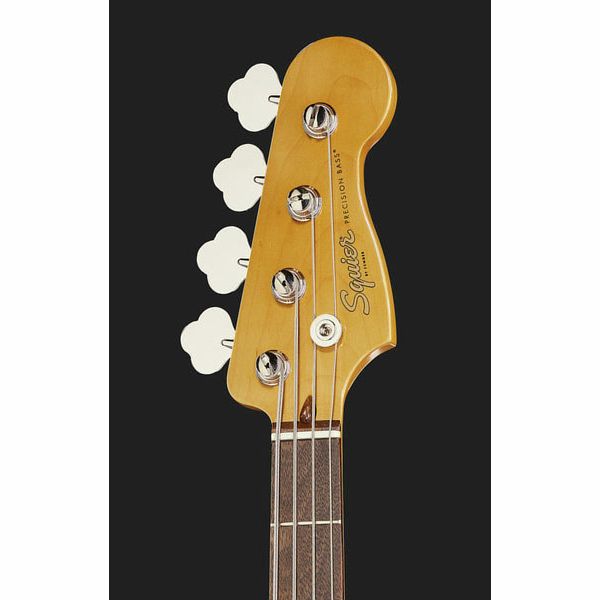
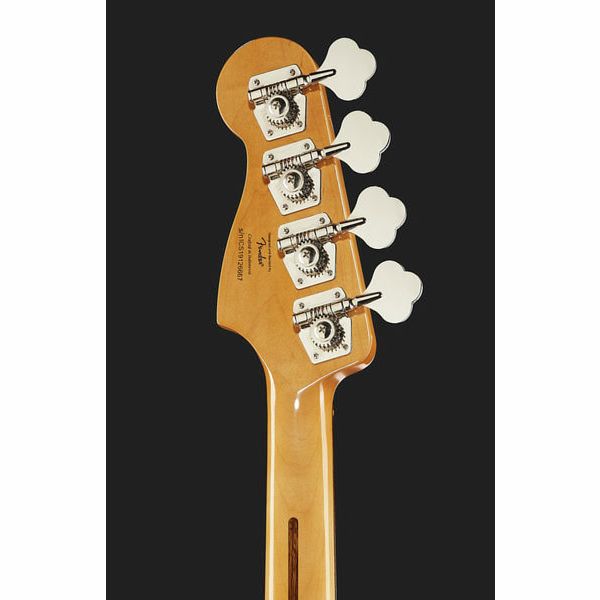
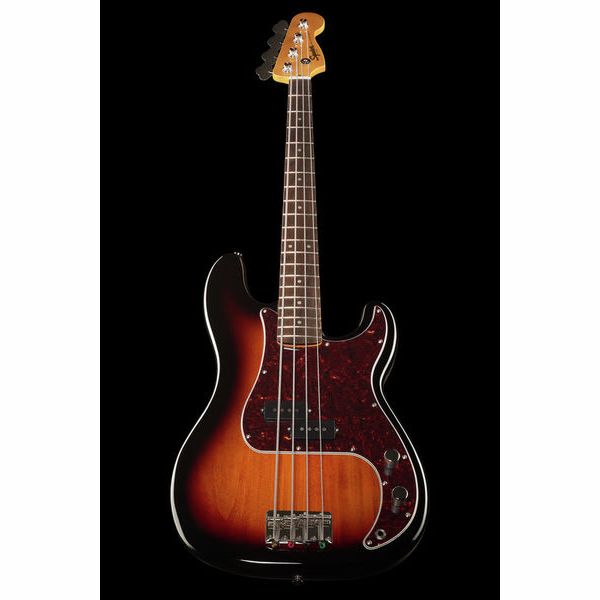
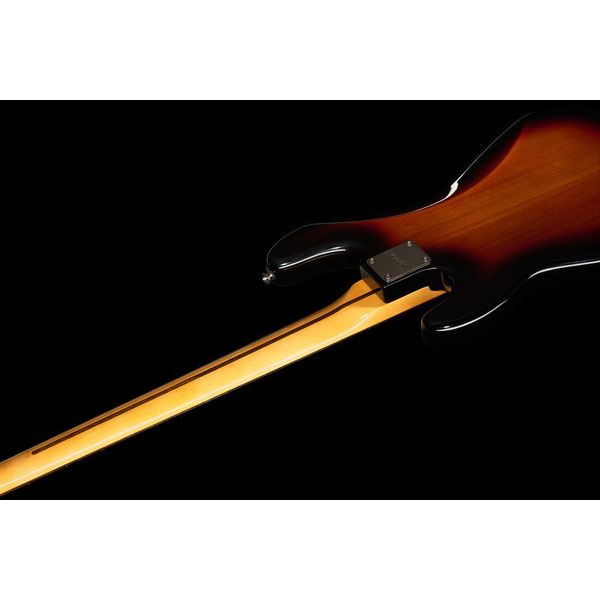
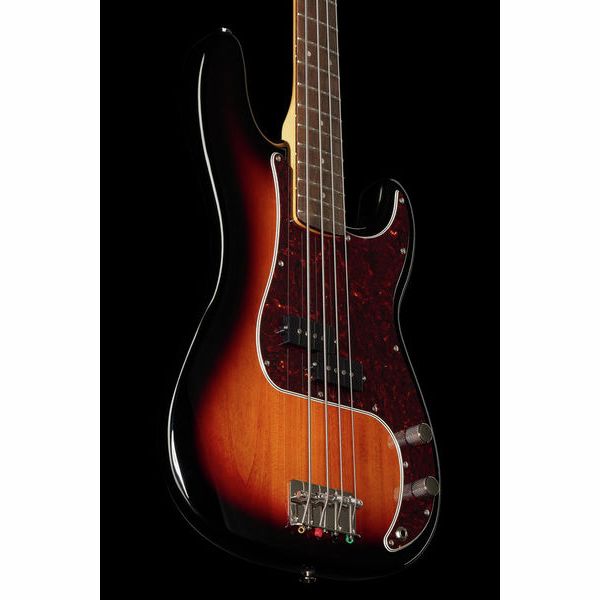
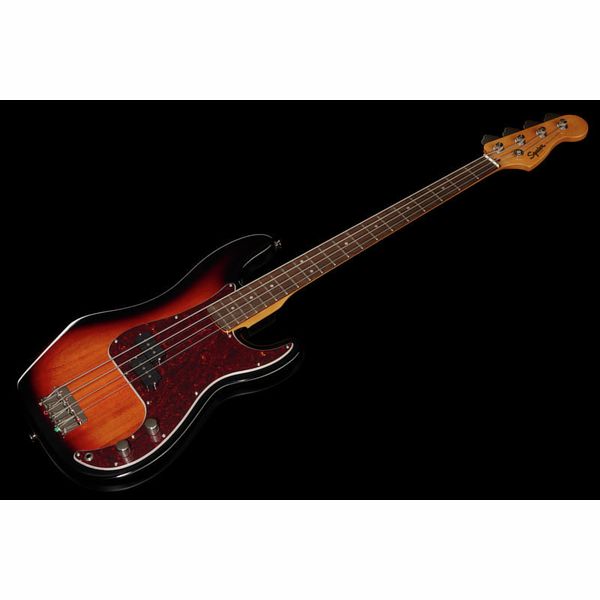
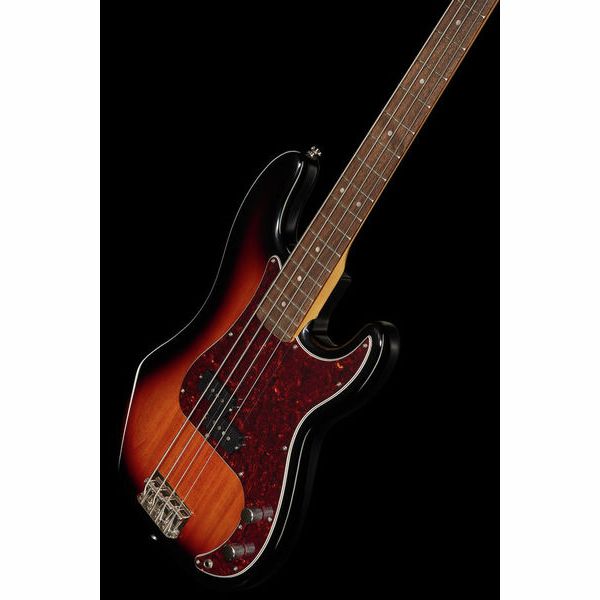
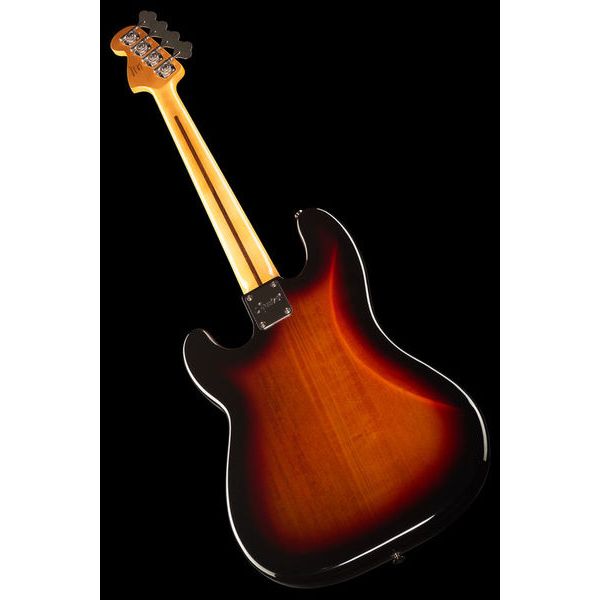















)
)
)
)